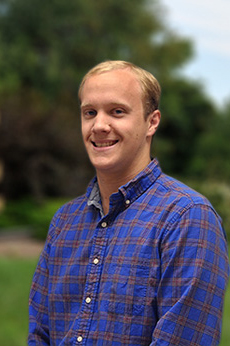Biochemistry
“Detection of Specific Single Soft Particles Binding to E-AB Sensors in Real Time”

Electrochemical aptamer-based (E-AB) sensors can be utilized to detect a multitude of different target molecules in a sample. Current methods, however, are limited to ensemble measurements of a large number of target molecules. Conversely, specific single molecule sensing at low detection limits represents a highly sensitive method of detection of analytes in a sample. In this project, I aim to detect Immunoglobulin E (IgE), a protein that is involved with the immune response in the human body, with specific single molecule sensitivity. Nonspecific detection of single IgEs by previous experimental methods involved observing discrete current reductions in real-time at a gold nanodisk electrode due to IgE blocking part of its electroactive surface area. The proposed method, however, involves modifying the electrode surface with a DNA aptamer specific to IgE, in which only IgE collisions and binding will result in similar current reductions due to the blocking of the electroactive surface. Under these conditions, the protein should bind to the aptamer instead of colliding with the electrode surface. Detecting this particular protein with the proposed protocol will show that DNA aptamers can be utilized for specific electrochemical single particle detection.
Who is your mentor for your research project? How did you arrange to work with this person?
My mentor is Dr. Ryan White from the Department of Chemistry and Biochemistry, and I joined the White Lab during the spring of 2015, and he suggested the idea for this project months later.
How did you know this was the project you wanted to do?
I found it quite interesting because I enjoy analytical chemistry, and I like solving problems. My project also is challenging, and thus engaging, because it requires a lot of dexterity to fabricate the sensors, and these sensors must have a very high level of sensitivity.
Is this your first independent research project?
Yes, I have never before worked independently on a research project.
Do you get course credit for this work?
I currently am not receiving credit during the summer but will be earning course credit in the upcoming fall semester.
How much time do you put into it?
I have been working in the White Group for a little over a year now.
How did you hear about the Undergraduate Research Award (URA) program?
Justine Lottermoser, a colleague of mine who also works for Dr. White and is a URA Scholar, and my mentor suggested that I apply to the URA program.
What academic background did you have before you applied for the URA?
Was the application difficult to do?
How much did your mentor help you with the application?
He helped with the budgeting section, mostly. He also looked over the project summary/abstract portion.
What has been the hardest part about your research?
The hardest part is keeping up the motivation when things keep going wrong. It’s hard to push through when none of your troubleshooting is successful, but there are always other people that are happy to help you. Once the problem is solved, however, it makes all the hardship worth it, and makes the accomplishment that much more rewarding.
What was the most unexpected thing?
Honestly, the most unexpected thing for me was being awarded the URA and being selected to participate in the URA Program.
How does your research relate to your work in other classes?
When classes get into a section about instrumentation, or analytical chemistry, I feel like it relates back to the work I do in the lab.
What is your advice to other students about getting involved in research?
If you are really interested in the work you are doing and want the project to succeed, then observing and looking into work that others have done in your field is a truly great thing to do. It will give you great insight not only on your own project, but also on the general knowledge associated with the field in which you are working.
What are your career goals?
I would like to become a biomedical researcher to work on developing cures and vaccines for infectious diseases.
9/26/2018